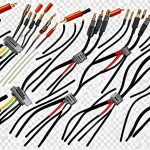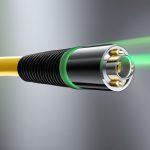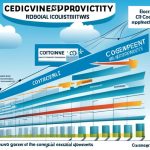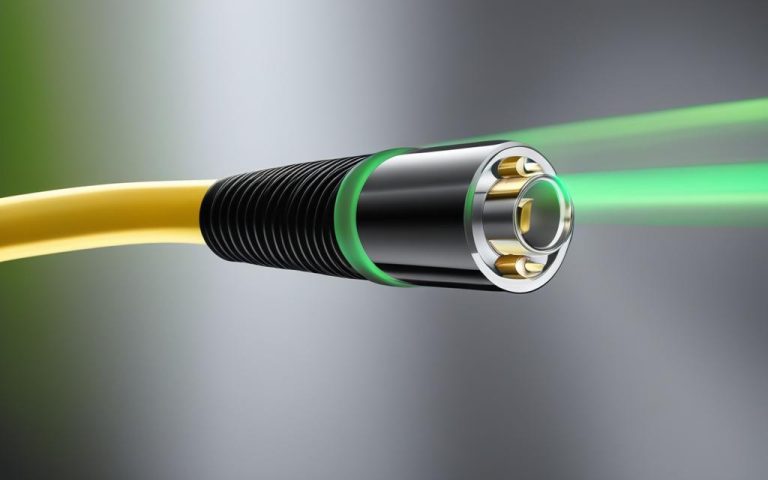Fiber optic cables offer unparalleled speed and bandwidth capacity compared to traditional coaxial cables. They can deliver multigigabit speeds, ensuring lightning-fast downloads, seamless streaming, and lag-free online gaming. Fiber optic networks are also more reliable than coaxial cables, as they are immune to interference and signal degradation. In addition to speed and reliability, fiber optic technology also future-proofs infrastructure, supports the development of smart communities, and offers environmental benefits.
When it comes to high-speed internet access, coaxial cables have been a reliable and widely used solution. Coaxial cables have been the backbone of internet connectivity for years, offering a robust and efficient means of transmitting data. However, with the advent of fiber optic technology, the landscape of high-speed internet access has evolved.
High-speed internet is a necessity in today’s connected world, empowering individuals, businesses, and communities with seamless access to information, communication, and entertainment. Whether it’s streaming high-definition videos, participating in video conferences, or gaming with friends, a reliable and fast internet connection is essential.
Coaxial cables have long been the go-to choice for delivering broadband internet access. They provide a stable and consistent connection, making them suitable for residential, commercial, and industrial applications. However, compared to fiber optic cables, coaxial cables have limitations when it comes to speed and capacity.
The Evolution of High-Speed Connectivity
The evolution of high-speed connectivity has witnessed significant advancements in various technologies. From the early days of dial-up modems to the latest developments in fiber optic internet and wireless connectivity, the internet landscape has transformed dramatically, revolutionizing how we access and interact with information online.
Dial-up modems were the pioneers in connecting users to the internet. This technology provided basic internet access through telephone lines, but its slow speeds and limited bandwidth soon became a hindrance.
The emergence of DSL (Digital Subscriber Line) technology marked a significant improvement in high-speed connectivity. DSL allowed users to achieve faster internet speeds by utilizing existing copper telephone lines to transmit data.
The breakthrough in cable internet came with the use of coaxial cables, commonly employed for delivering cable television. Cable internet leveraged the infrastructure already in place, enabling users to enjoy faster speeds and more stable connections compared to dial-up and DSL.
However, the most advanced form of high-speed connectivity today is fiber optic internet. Fiber optic cables, composed of thin strands of glass or plastic, transmit data using light signals. This technology offers unprecedented speed and reliability, making it ideal for bandwidth-intensive activities like streaming, online gaming, and large file transfers. Fiber optic internet also provides higher upload and download speeds, ensuring a seamless online experience.
In addition to wired technologies, wireless connectivity has played a vital role in the evolution of high-speed internet access. Wi-Fi, for instance, enables users to connect to the internet without the need for physical cables, providing flexibility and convenience. With the increasing popularity of mobile devices, wireless connectivity has become essential in our daily lives, allowing us to stay connected on the go.
The evolution of high-speed connectivity has paved the way for an interconnected and digitally-driven world. From the humble beginnings of dial-up modems to the lightning-fast speeds of fiber optic internet, each advancement has brought us closer to a future fueled by high-speed, seamless connectivity.
A Game-Changer for Broadband Access
BabyBells, the regional telephone companies that emerged after the breakup of the Bell System in 1984, have revolutionized broadband access, becoming a game-changer in the industry. These companies have brought enhanced competition to the market, offering more choices and better services for consumers. Moreover, BabyBells have made significant infrastructure investments to expand broadband coverage, especially in rural and underserved areas. By investing in technological advancements, such as fiber-optic networks, BabyBells have pushed the boundaries of speed and capacity in broadband access, providing faster and more reliable internet connections.
| Benefits of BabyBells in Broadband Access |
|---|
| Enhanced competition in the market |
| Expanded broadband coverage, especially in rural and underserved areas |
| Technological advancements in fiber-optic networks |
| Increased speed and capacity in broadband access |
With their commitment to infrastructure investment and utilization of cutting-edge technologies, BabyBells have played a crucial role in bridging the digital divide and ensuring that more people have access to high-quality broadband services. As a result, individuals and businesses can benefit from faster downloads, seamless streaming, and improved communication.
In the next section, we will explore the concept of BabyBells in more detail, delving into their formation and the impact they have had on the broadband industry.

What are BabyBells?
BabyBells, also known as regional telephone companies, are a result of the divestiture of AT&T in 1984. These companies played a crucial role in the expansion of broadband services by leveraging their existing infrastructure. With their extensive network of telephone lines, BabyBells were able to provide broadband access to a wide range of customers.
One of the key contributions of BabyBells to the broadband industry was the introduction of enhanced competition. Prior to the breakup of AT&T, the telecommunications market was dominated by a single company. The emergence of regional telephone companies injected competition into the market, giving consumers more options and driving innovation.
Furthermore, BabyBells played a significant role in expanding broadband coverage. Leveraging their existing infrastructure, these companies were able to quickly deploy broadband services to both urban and rural areas. By utilizing their telephone lines, BabyBells were able to connect homes and businesses to the internet, opening up new opportunities for communication and economic growth.
Although BabyBells played a pivotal role in the early days of broadband, it’s important to consider some of the challenges they faced. Monopolistic practices by some regional telephone companies limited competition in certain areas, which hindered widespread broadband adoption. Additionally, the speed and capacity of broadband services provided by BabyBells were often limited compared to newer technologies like fiber optics.
Despite these challenges, BabyBells’ contributions to the broadband industry cannot be overlooked. They paved the way for the expansion of broadband access, bringing internet connectivity to millions of homes and businesses across the country. Today, their legacy lives on in the form of modern telecommunications companies that continue to push the boundaries of high-speed connectivity.
Key Points:
- BabyBells are regional telephone companies created after the divestiture of AT&T in 1984.
- They played a crucial role in expanding broadband services by leveraging existing infrastructure.
- BabyBells brought enhanced competition to the market and expanded broadband coverage.
- However, challenges such as monopolistic practices and limitations in speed and capacity existed.
Mecklenburg Electric Cooperative’s Creative Solutions for Broadband Deployment
Mecklenburg Electric Cooperative (MEC) has consistently demonstrated its commitment to bridging the digital divide and providing high-speed broadband access to underserved communities. In line with this vision, MEC has implemented a range of innovative solutions to optimize internet access and rapidly deploy broadband services.
One of the key strategies employed by MEC is the acquisition of strategic assets in the telecommunications industry. By acquiring a telephone cooperative and a cable television company, MEC has gained valuable infrastructure and expertise to expand their broadband deployment capabilities. This bold move allows MEC to leverage existing resources and accelerate the delivery of high-speed broadband to their members.
“Our goal is to ensure that every member of our cooperative has access to reliable and affordable broadband services. Through strategic acquisitions, we are making significant strides in closing the digital divide.” – John Lee, CEO of Mecklenburg Electric Cooperative
Additionally, to connect customers in sparsely populated areas, MEC has entered into a partnership with Dominion Energy Virginia. This collaboration enables MEC to utilize middle-mile fiber provided by Dominion Energy Virginia, further extending their reach and connectivity. By leveraging these fiber assets, MEC can efficiently deliver high-speed broadband to even the most remote corners of their region.
EMPOWER Broadband: Transforming Cable TV Infrastructure into High-Speed Broadband
EMPOWER Broadband, a subsidiary of MEC, has recently acquired a cable television company, marking a significant expansion in their high-speed broadband service offerings. This acquisition presents an opportunity for EMPOWER Broadband to convert and upgrade the existing cable infrastructure into a fiber-fed DOCSIS system. The deployment of a fiber-fed DOCSIS system ensures high-performance, weather-resistant connectivity for the acquired company’s 2,000 homes and businesses.
Through this progressive infrastructure conversion, EMPOWER Broadband not only enhances its broadband footprint but also strengthens its commitment to providing reliable and robust high-speed internet access. This strategic move allows EMPOWER Broadband to leverage the existing cable television network, effectively optimizing resources and transitioning to a modernized, future-proof broadband infrastructure.
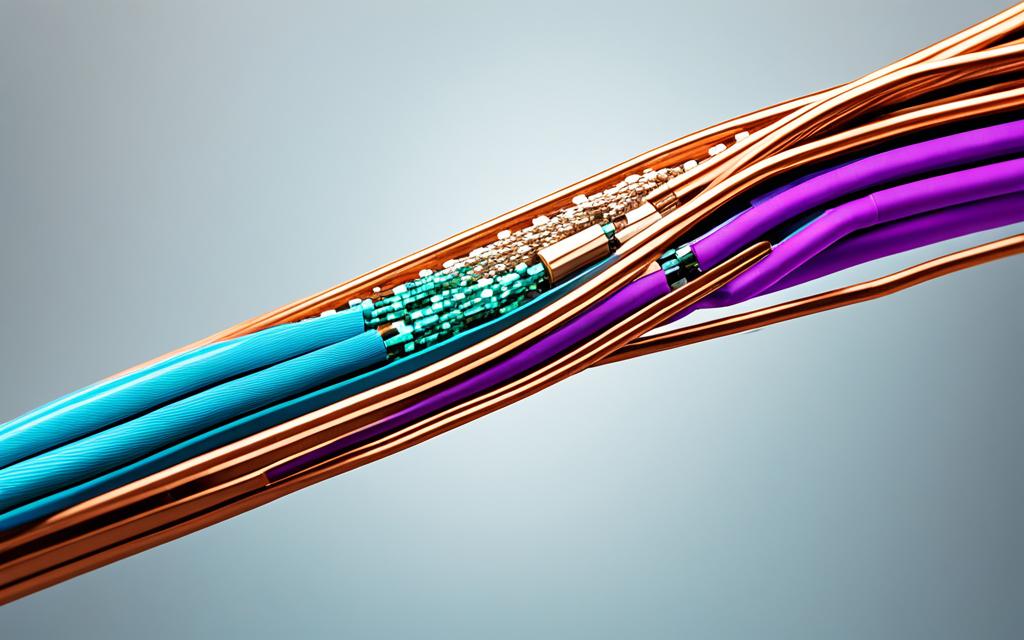
The implementation of these creative solutions by Mecklenburg Electric Cooperative and its subsidiary, EMPOWER Broadband, demonstrates their dedication to bringing affordable and high-speed broadband services to previously underserved communities. By harnessing strategic acquisitions and leveraging fiber assets, MEC has swiftly deployed broadband and become a driving force in bridging the digital divide. Their commitment to innovation and investment in infrastructure sets a promising outlook for broadband deployment in the region and paves the way for a more connected future.
EMPOWER Broadband’s Expansion with Cable TV Acquisition
EMPOWER Broadband, the subsidiary of Mecklenburg Electric Cooperative, is further expanding its high-speed broadband service with the recent acquisition of a cable television company. This strategic move allows EMPOWER Broadband to continue its mission of bridging the digital divide and providing reliable internet access to underserved communities.
The acquisition of the cable television company presents an opportunity for EMPOWER Broadband to leverage existing infrastructure and quickly expand its high-speed broadband service. By integrating the acquired network into its own, EMPOWER Broadband can connect an additional 2,000 homes and businesses, empowering more people with fast and reliable internet access.
The conversion and upgrade process involves transforming the analog television system’s coaxial cable network into a cutting-edge fiber-fed DOCSIS 3.1 system. This infrastructure conversion ensures high-performance and weather-resistant connectivity, delivering the benefits of high-speed broadband to even the most remote areas.
The Benefits of EMPOWER Broadband’s Infrastructure Conversion:
- Enhanced Speed: The fiber-fed DOCSIS 3.1 system enables faster download and upload speeds, providing an optimal online experience for users.
- Reliability: Fiber-optic technology is less prone to interference and signal degradation, ensuring a stable and uninterrupted connection.
- Future-Proofing: The infrastructure conversion positions EMPOWER Broadband in line with cutting-edge technologies, allowing for scalability and adaptability to evolving user demands.
- Expanded Coverage: By utilizing the cable television company’s existing network, EMPOWER Broadband can extend its service to previously underserved areas.
The Impact on Underserved Communities:
The expansion of EMPOWER Broadband’s high-speed broadband service through the acquisition and infrastructure conversion paves the way for improved educational opportunities, telehealth services, remote work capabilities, and increased economic growth in underserved communities. By bridging the digital divide, EMPOWER Broadband is empowering individuals, businesses, and organizations to thrive in the digital age.
Conclusion
The evolution of high-speed connectivity and the advent of fiber optic technology have significantly transformed our digital landscape. With its unparalleled speed, reliability, and scalability, fiber optic cables have revolutionized the way we connect and interact with the internet.
BabyBells, the regional telephone companies born out of the divestiture of AT&T, have played a vital role in expanding broadband access and driving innovation in the industry. Their infrastructure investments and competition have paved the way for improved connectivity and increased choices for consumers.
Mecklenburg Electric Cooperative’s creative solutions for broadband deployment highlight their commitment to bridging the digital divide and empowering underserved communities. Through strategic acquisitions and partnerships, they have rapidly expanded high-speed broadband services and connected previously underserved areas.
The future of high-speed connectivity looks promising, with continuous advancements in technology and efforts to ensure equitable access for all. As fiber optic technology continues to evolve and become more accessible, the potential for even faster and more reliable internet connections is within reach. Together, BabyBells and organizations like Mecklenburg Electric Cooperative are reshaping the landscape of broadband access, paving the way for a more connected and inclusive digital future.
FAQ
What are the advantages of fiber optic cables over traditional coaxial cables?
Fiber optic cables offer unparalleled speed and bandwidth capacity compared to traditional coaxial cables. They deliver multigigabit speeds, ensuring lightning-fast downloads, seamless streaming, and lag-free online gaming. Fiber optic networks are also more reliable than coaxial cables, as they are immune to interference and signal degradation. Additionally, fiber optic technology future-proofs infrastructure, supports the development of smart communities, and offers environmental benefits.
How has high-speed connectivity evolved over time?
The evolution of high-speed connectivity has seen the rise and improvement of various technologies. It started with dial-up modems as the first means of connecting to the internet, followed by DSL, which offered faster speeds through existing copper telephone lines. Cable internet, delivered through coaxial cables, became a game-changer in high-speed connectivity. However, the latest and most advanced form of high-speed connectivity is fiber optic internet, which uses light signals to transmit data. Wireless connectivity, such as Wi-Fi, has also played a significant role in the evolution of high-speed internet access.
What role do BabyBells play in broadband access?
BabyBells are regional telephone companies that emerged after the breakup of the Bell System in 1984. They have revolutionized broadband access by bringing enhanced competition to the market, offering more choices for consumers. BabyBells have also made significant infrastructure investments to expand broadband coverage, particularly in rural and underserved areas. Technological advancements, such as fiber-optic networks, have been deployed by BabyBells to push the boundaries of speed and capacity in broadband access.
What are BabyBells?
BabyBells are regional telephone companies that were created as a result of the divestiture of AT&T in 1984. They played a crucial role in the expansion of broadband services by leveraging their existing infrastructure. BabyBells have brought enhanced competition, expanded broadband coverage, and pushed technological advancements in the broadband industry. However, it is also important to consider challenges such as monopolistic practices and limitations in speed and capacity compared to newer technologies like fiber optics.
What creative solutions has Mecklenburg Electric Cooperative implemented for broadband deployment?
Mecklenburg Electric Cooperative has implemented creative solutions for broadband deployment in their region. They have acquired a telephone cooperative and a cable television company to optimize internet access and expand high-speed broadband services to underserved communities. In addition, they have partnered with Dominion Energy Virginia for middle-mile fiber to connect customers in sparsely populated areas. These initiatives have allowed Mecklenburg Electric Cooperative to rapidly deploy broadband and bridge the digital divide.
How is EMPOWER Broadband expanding with a cable television acquisition?
EMPOWER Broadband, Mecklenburg Electric Cooperative’s subsidiary, has acquired a cable television company to continue expanding their high-speed broadband service. The conversion and upgrade of equipment from the cable company to EMPOWER Broadband’s network will allow them to deliver broadband to an additional 2,000 homes and businesses. The conversion process involves converting the analog television system’s coaxial cable network into a fiber-fed DOCSIS 3.1 system, providing high-performance and weather-resistant connectivity to underserved communities.
What are the advantages of upgrading to fiber optic technology for high-speed internet access?
The upgrade to high-speed internet access through fiber optic technology has revolutionized the way we connect and interact with the digital world. Fiber optic cables offer unparalleled speed, reliability, and scalability, ensuring uninterrupted access to bandwidth-intensive applications and services. BabyBells have played a key role in expanding broadband access and driving innovation in the industry. Mecklenburg Electric Cooperative’s creative solutions further demonstrate the commitment to bridging the digital divide and empowering underserved communities with high-speed broadband. The future of high-speed connectivity looks promising, with continuous advancements and efforts to ensure equitable access for all.


